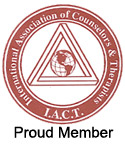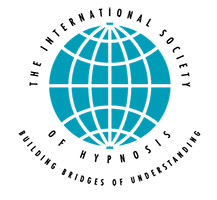
Coaching, with a professional coach, is the practice of supporting an individual, referred to as a coachee or client, through the process of achieving a specific personal or professional result.
The structure and methodologies of coaching are numerous but are predominantly facilitating in style; that is to say that the coach mainly asks questions and challenges the coachee.Coaching is differentiated from therapeutic and counseling disciplines. There are a variety of approaches within the coaching methodology. Coaching is performed with individuals and groups, in person, over the phone and online.
The facilitative approach was pioneered to coaching in sport, before this, coaching was (and often remains) solely a skills-based learning experience from a master. Other contexts for coaching include executive coaching, life-coaching, emotional intelligence coaching and wealth coaching.
Today, coaching is widespread. For example, Newcastle College registered 15,000 students on its Performance Coaching Diploma Course from launch and within its first four years. The UK's Chartered Institute of Personnel Management reports that 51% of companies (sample of 500) 'consider coaching as a key part of learning development' and 'crucial to their strategy', with 90% reporting that they 'use coaching'.
More recent research in 2011 by Qa Research, an independent marketing research agency in the UK, found that 80% of organizations surveyed had used or are now using coaching, but also found that while 90% of organizations with over 2,000 employees had used coaching in the past five years, only 68% of companies with 230-500 employees had done the same..
The basic skills of coaching are often developed in managers within organizations specifically to improve their managing and leadership abilities, rather than to apply in formal one-to-one coaching sessions. These skills can also be applied within team meetings and are then akin to the more traditional skills of group facilitation.
In business, coaching refers to a method of personal development or human resource development. This field of coaching is becoming a distinct area of practice for individuals and in organizations. A casual business practice of coaching is the act of providing positive support and feedback while offering occasional advice to an individual or group in order to help them recognize ways in which they can improve the effectiveness of their business. This can be provided in a number of ways, including one-on-one, group coaching sessions and large scale organizational work. Business coaches often specialize in different practice areas such as executive coaching, corporate coaching and leadership coaching.
At least three organizations, the International Coach Federation, the International Coaching Council and the Worldwide Association of Business Coaches provide a membership-based association for professionals involved in business coaching. These and other organizations train professionals to offer business coaching to business owners who may not be able to afford large coaching firm prices. According to a Market Data Report in 2007, it is estimated that 40,000 people in the U.S. work as business or life coaches, and the $2.4 billion business coaching market is growing at about 18% per year. Business coaching was also reported as being one of the fastest growing industries in the world, following the IT industry, by the National Post.
Coaching is not a practice restricted to external experts or providers. Many organizations expect their senior leaders and middle managers to coach their team members toward higher levels of performance, increased job satisfaction, personal growth, and career development. Business coaching is not the same as mentoring. Mentoring involves a developmental relationship between a more experienced "mentor" and a less experienced partner, and typically involves sharing of advice. A business coach can act as a mentor given that he or she has adequate expertise and experience. However, mentoring is not a form of business coaching. Few link coaching activities to compensation, however resulting in less coaching by managers.
Executive Coaching involves a coaching professional working with a client to reach a specific goal in their professional development. The specific areas of coaching may include career transition, interpersonal and professional communication, performance management, organizational effectiveness, managing career and personal changes, developing executive presence, enhancing strategic thinking, dealing effectively with conflict, and building an effective team within an organization. An Industrial Organizational Psychologist (I/O psychologist) is one example of a trained professional who can render executive coaching.








